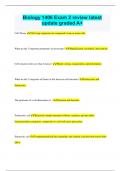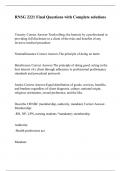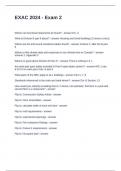Notes de cours
Law of The European Union: Week 4 Full Notes
- Cours
- Établissement
This in-depth document covers everything that was discussed in Week 4 of the Law of The European Union course (LLB, year 2, block 1). Inside you will find the concepts from the lecture explained in a structured bullet point format with extensive explanation to help clarify the material. In particul...
[Montrer plus]












